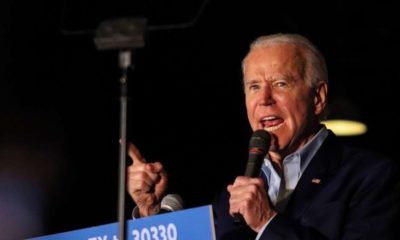Breaking News
Virus Flare-Ups Threaten to Derail Reopening Efforts

Several states are reporting rapid rises in cases after reopening just a few weeks ago. The spikes are forcing some local governments to rollback reopening efforts. Many fear that it could ultimately lead to a reinstatement of more draconian virus containment efforts.
Last week, the U.S. saw its highest number of newly reported COVID-19 cases in months. California, Texas, and Florida all reported record-breaking numbers of new cases. The rapidly rising number of infections is prompting local governments to reevaluate their reopening plans. Many have already chosen to implement restrictions in order to quell the rising tide of COVID-19 infections, but they’ve stopped short of recalling the kind of strict lockdown orders that paralyzed the country in the spring. However, some experts fear that the hardest-hit states may ultimately be forced to reinstitute major lockdowns to bring the virus under control.
Texas and Resurgence of Virus Cases
Texas Gov. Greg Abbott drew praise from many lockdown critics for his early reopening efforts. Texas was one of the first states to broadly reopen its economy, and virus cases initially declined in the early days of the opening. However, the state is now suffering from one of the worst resurgences in the country after reopening roughly two months ago.
Abbot slammed the breaks on Texas’s reopening efforts after a wave of new cases threatened to overwhelm some local hospitals. Last week, Abbot suspended elective surgeries in order to lessen the strain on the state’s healthcare system. The governor also suspended reopening efforts, but he stopped short of reinstituting total lockdowns. Despite Abbot’s efforts, the number of cases continues to climb. On Monday, Texas and California both reported record-breaking days of new COVID-19 cases.
California, Arizona, Florida
https://twitter.com/socal_bryan/status/1275826072345382913
California, Arizona, and Florida are also struggling to cope with a wave of COVID-19 outbreaks. The states are struggling to strike a balance between containing the virus and protecting their fragile economies. Meanwhile, federal aid programs for small businesses will phase out soon, and the expanded unemployment benefits furnished by the CARES act will expire on July 31 if Congress doesn’t intervene.
The localized outbreaks have far-reaching consequences. Rapidly-escalating outbreaks in other states are leading some governors to rethink their reopening plans. Indoor dining was set to resume in New Jersey on Thursday. However, Governor Phil Murphy postponed it indefinitely due to the outbreaks in other states. In Kansas, Governor Laura Kelly imposed a statewide order that made mask-wearing mandatory in public spaces.
Northeastern States
Some governors are taking steps to prevent the recent outbreaks from seeping into their states. A group of Northeastern governors, that includes New Jersey, Connecticut, and New York, recently imposed a 14-day mandatory quarantine restriction for anyone coming into their states from COVID-19 hotspots. The order covers anyone coming from a state with a high number of per-capita infections. “We have to make sure the virus doesn't come in on a plane,” said New York Gov. Andrew Cuomo. “We worked very hard to get the viral transmission rate down, and we don't want to see it go up.”
As COVID-19 cases rise, some fear that local governments could reinstitute harsh lockdowns like those that gripped the country in the spring. However, many are holding onto the hope that their state governments will not subject them to such a drastic setback. Local governors know that a second lockdown would be catastrophic to the country’s fragile economic recovery, so many view the measure as an absolute last resort. However, the possibility will continue to loom over the country until the virus is fully under control.
Up Next:












